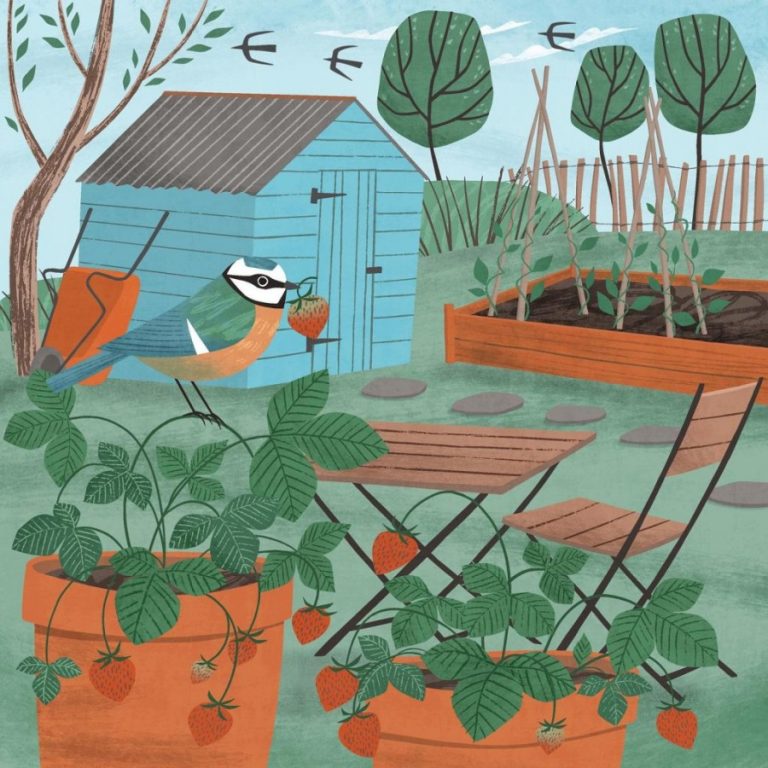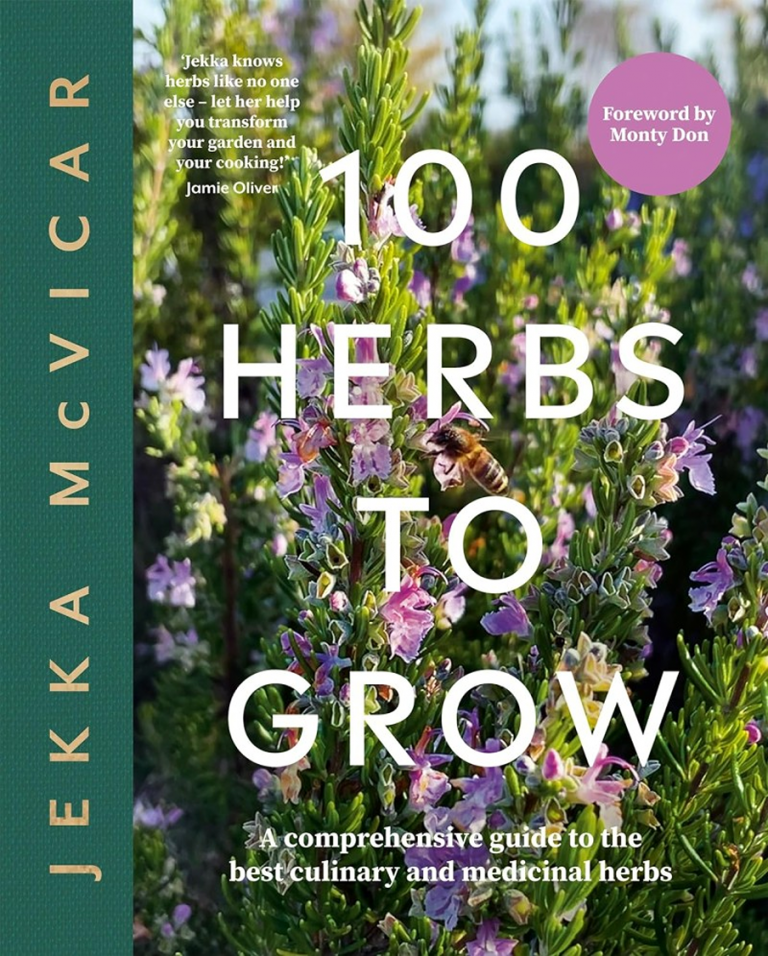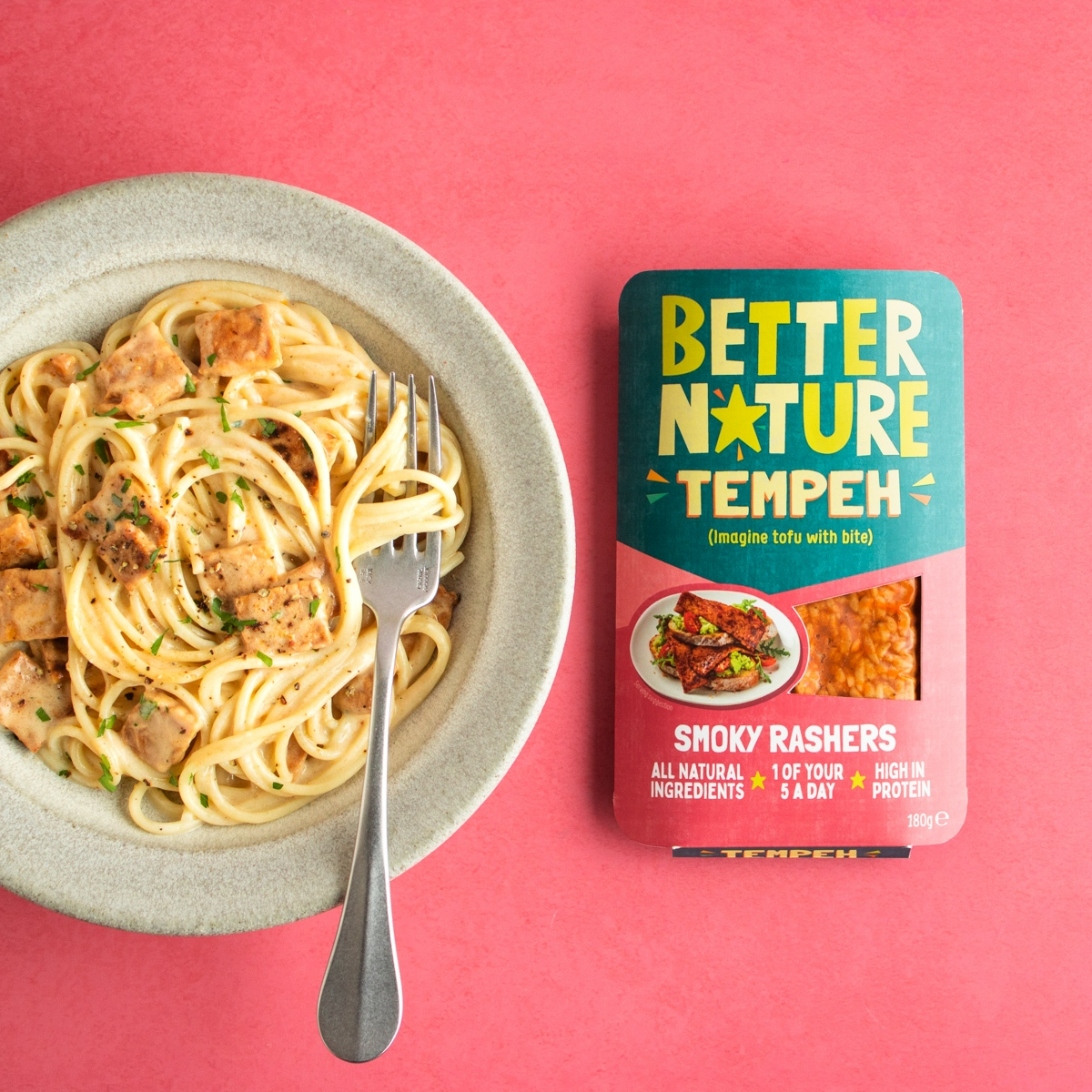
Bloating, cramps, irregular bowel movements. Many people deal with these, often in silence. The good news is that simple plant-based fermented foods can offer a natural way to support your gut, without supplements.
The most simple fermented food to try is live yoghurt (you can buy good vegan brands in health stores and supermarkets).
Before cooking, read our post on food safety for people and pets (check medication before eating/drinking grapefruit or rhubarb). Just bin garlic/onion scraps, as acids could harm compost creatures.
Fermented foods may sometimes have a greater risk of contamination if not handled/stored properly, which is why often it’s good to buy ready-made. A few fermented foods also create alcohol, so be aware of this. If in doubt, contact your GP or registered clinician.
Natural is not always safe! Most people are fine on fermented foods, but a few people should exercise caution:
- Very young or old people or pregnant/nursing women (never eat raw unpasteurised foods like cheese or mould-based ferments)
- People with poor immunity (or transplant recipients) due to higher risk of infection, from bacteria in fermented foods. And people with histamine intolerance (fermented foods are high in histamine)
- People on low-salt diets (most fermented foods use salt)
- A few digestion issues (although fermented foods usually help digestion), a few people may get temporary gas and bloating from probiotics, so either avoid or introduce gently, with guidance from your GP)
- Fermented foods may sometimes have a greater risk of contamination if not handled/stored properly, which is why often it’s good to buy ready-made. A few fermented foods also create alcohol, so be aware of this. If in doubt, contact your GP or registered clinician.
People with FODMAP sensitivity (IBS, leaky gut etc). This word stands for (wait for it) – Fermentable Oligosaccharides, Disaccharides, Monosaccharides, and Polyols, which are short-chain carbohydrates that are poorly absorbed by the small intestine, then fermented by bacteria in the large intestine.
This process can cause digestive symptoms like gas, bloating, pain, and diarrhoea in some people, and low-FODMAP diets temporarily restrict certain foods, to help improve symptoms of people with IBS (irritable bowel syndrome).
Common Examples of Fermented Vegan Foods
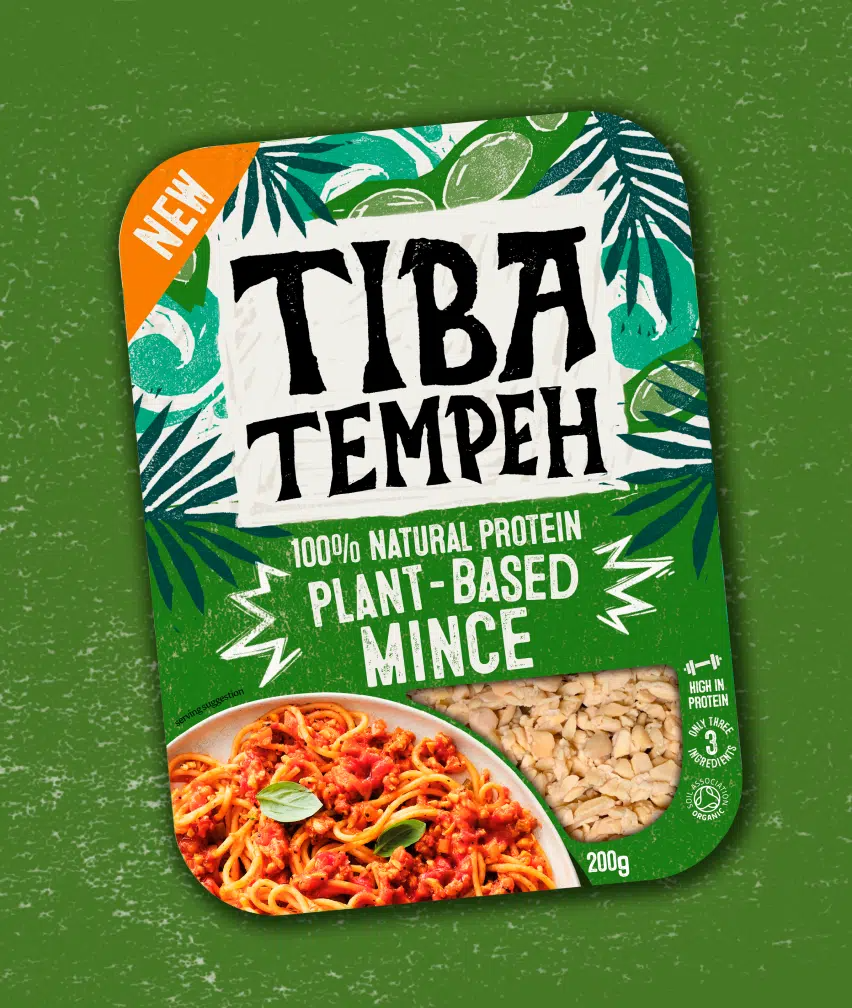
- Tempeh: Fermented soybeans pressed into a firm cake. Its fermentation breaks down some anti-nutrients, which can make protein and minerals easier to absorb.
- Sourdough Bread: this is made with a sourdough starter of flour, water and natural wild yeasts and lactic acid, to make dough rise. It has a unique sour taste.
- Sauerkraut: Finely shredded cabbage fermented with salt. Light, crunchy, and packed with lactic acid bacteria that support softer stools and less gas.
- Kimchi: Spiced, fermented cabbage and vegetables. The chilli and garlic can aid circulation, while the ferment supports regularity and reduces heavy, post-meal discomfort.
- Miso: Fermented soybean paste used in broths and dressings. A small spoon adds savoury depth and brings enzymes that can support protein digestion.
- Kombucha: Fermented tea with a light fizz. Contains organic acids and live cultures that may support a calmer gut and a gentle energy lift without dairy.
How Do fermented Foods Work?

Fermentation is a process where bacteria or yeast break down sugars in plant foods. In the process, they create probiotics, which are friendly bacteria that can support your gut. Vegan ferments use plants only, so there is no dairy yoghurt or cheese involved. The result is food that is tangy, complex, and kinder on the stomach.
During fermentation, live cultures grow in a safe, salty or acidic environment. Many survive the journey through your stomach and reach the gut alive. There, they join existing microbes, and produce short-chain fatty acids that soothe the gut lining. They also create enzymes that help break down starches and proteins.
For digestion, this matters. A balanced gut microbiome helps process food more smoothly, which can mean less gas and fuller stools that pass with ease. Research shows that eating fermented foods can increase microbiome diversity, which is often linked to better digestive comfort and overall gut resilience.
How Fermented Foods Boost Digestion
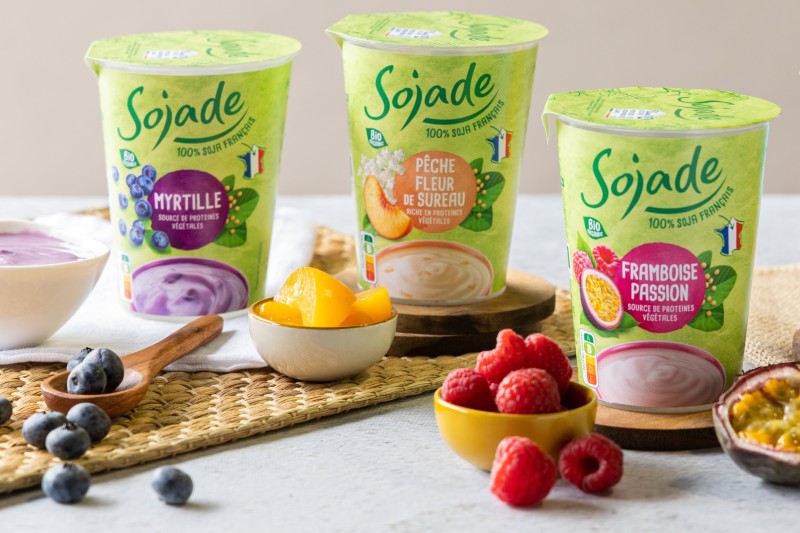
Think of your gut as a garden. It needs the right plants, a steady water supply, and good soil. Fermented foods help in three ways. They add friendly bacteria, they support those bacteria with fibres and acids, and they bring enzymes that make nutrients easier to absorb.
The probiotics in fermented foods can crowd out less helpful microbes. The fibres in plants act as prebiotics, which feed those friendly bacteria. Enzymes formed during fermentation start the breakdown of carbs and proteins before you even eat them, which can ease the load on your digestive tract.
People often report less bloating, better regularity, and steadier energy after meals when they bring these foods into their week.
Store ferments in the fridge once opened. They often keep for weeks, and the flavour deepens with time. Combine them with colourful veg, whole carbs, and healthy fats for steady energy and calm digestion.
Simple Recipes and Meal Ideas
- Tempeh ginger stir-fry: Tempeh, broccoli, peppers, ginger, tamari, sesame oil, brown rice. Quick fry the veg, add sliced tempeh, finish with tamari and ginger.
- Miso noodle soup: Vegetable stock, miso paste, soft tofu, spinach, spring onions, soba noodles. Heat stock, cook noodles, turn off the heat, whisk in miso, add tofu and greens.
- Kimchi fried rice: Cooked brown rice, chopped kimchi, peas, carrots, garlic, a splash of soy sauce. Stir-fry the veg, add rice and kimchi at the end.
- Simple sauerkraut toastie: Wholegrain bread, hummus, sauerkraut, sliced tomato. Toast bread, spread hummus, top with kraut and tomato.
Nettle Foods (fermented foods from Oxfordshire)

Nettle Foods is a small artisan food company from Oxfordshire, which makes small-batch fermented foods, which combine prebiotic fibre that feeds good bacteria with probiotic cultures that add them. The result is food that tastes lively and may help digestion feel easier.

The plant-based range includes:
- Haverstock White: a gentle cheesy tang, for those who prefer subtle notes
- Sumac Chilli Mint: bright, zesty, and lightly hot, with mint to cool the palate.
- Preserved Lemon A soft grassy ferment
Sourcing plants from nearby growers shortens transport, cuts emissions, and keeps money in the local economy. Just a spoon or two can turn soups or roasted roots into something that tastes new:
- Add the preserved lemon dill to smashed peas on toast.
- Use Haverstock White in a cheese alternative toastie, or mixed salad.
- Spoon Sumac Chilli Mint over grain bowls, roasted aubergine, or veggie kebabs.
- Swirl any flavour into plant-based yoghurt, dips or hummus.
Fermented Kimchi & Sauerkraut
The Crafty Pickle offers jars of raw fermented kimchi and sauerkraut, recommended by chef James Martin. This company also focuses on avoiding food waste.
gut-loving water kefirs
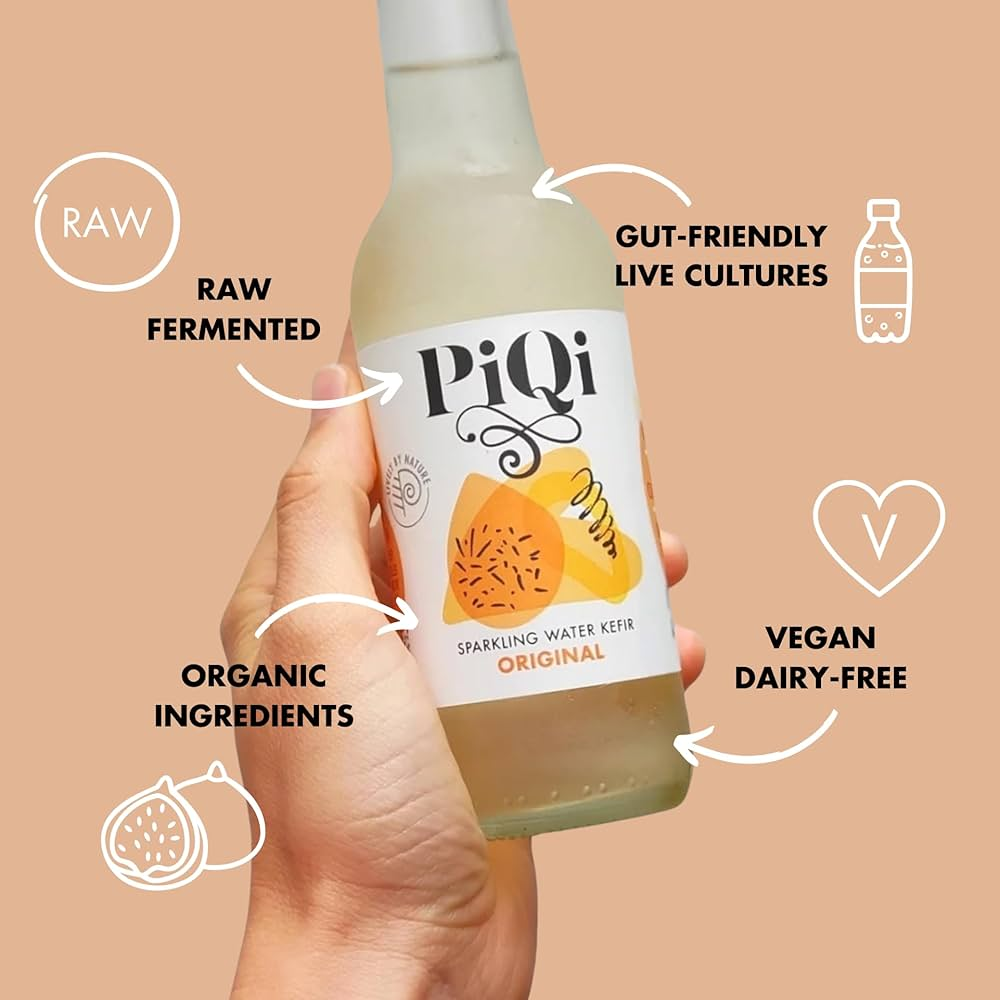
PiQi is a Devon-based brand that makes organic kefirs (with water, rather than goat milk). These raw drinks carry live cultures to balance the gut, so again avoid for children, weak immunity or pregnancy/nursing.
Kefir is a fermented drink made with organic sugar and kefir culture (a mix of bacteria and yeast that creates a gentle fizz and clean tang, with a dose of natural probiotics). Made with organic fruits and herbs, they also contain vitamins, enzymes, amino acids and antioxidants. These have a shorter shelf life than soft drinks, so keep them in the fridge and treat as a fresh food. The range includes:
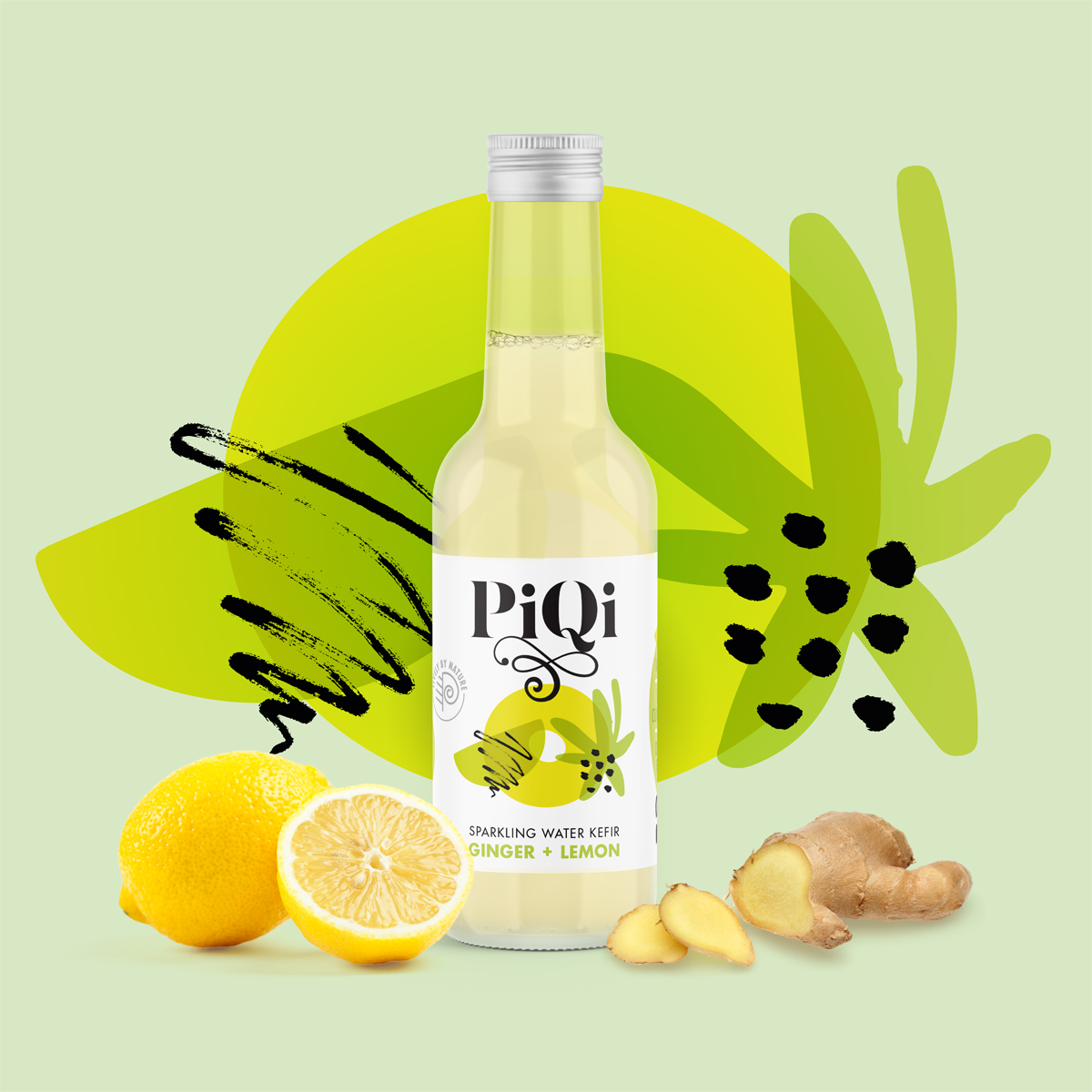
- Ginger and Lemon
- Raspberries
- Original Fig
- Blue Spirulina & Lemon (check medication)
Drink chilled or over ice, or mix with chilled water for a longer drink. The fig flavour is nice over ice with a thin pear slice.
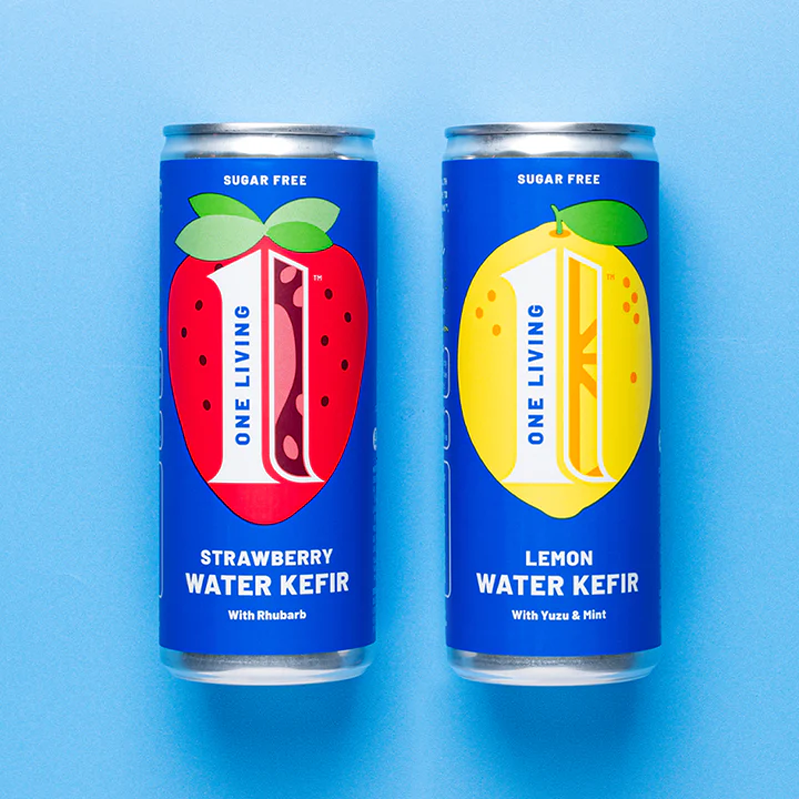
ONE Living (founded by rugby legend Jonny Wilkinson also offers canned water kefirs. Choose from strawberry or lemon flavours.
You don’t need to crush cans for recycling. But do pop the ring-pull back over the can beforehand, to help avoid wildlife getting trapped.
A Book of Vegan Fermented Recipes
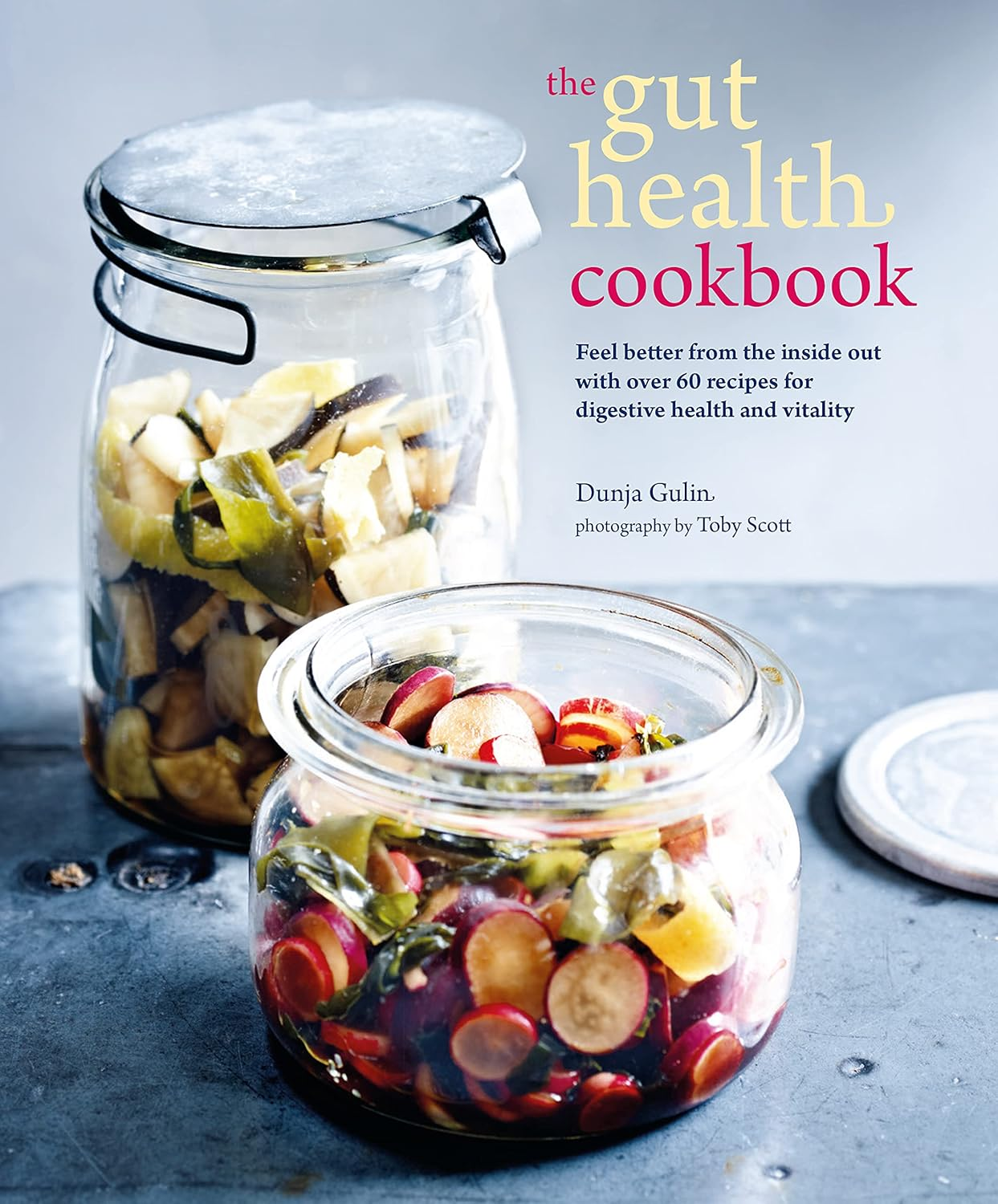
The Gut Health Cookbook is a book of recipes by a Croatian vegan chef, who specialises in creating meals with fermented ingredients. These ‘repair your tummy’ recipes include:
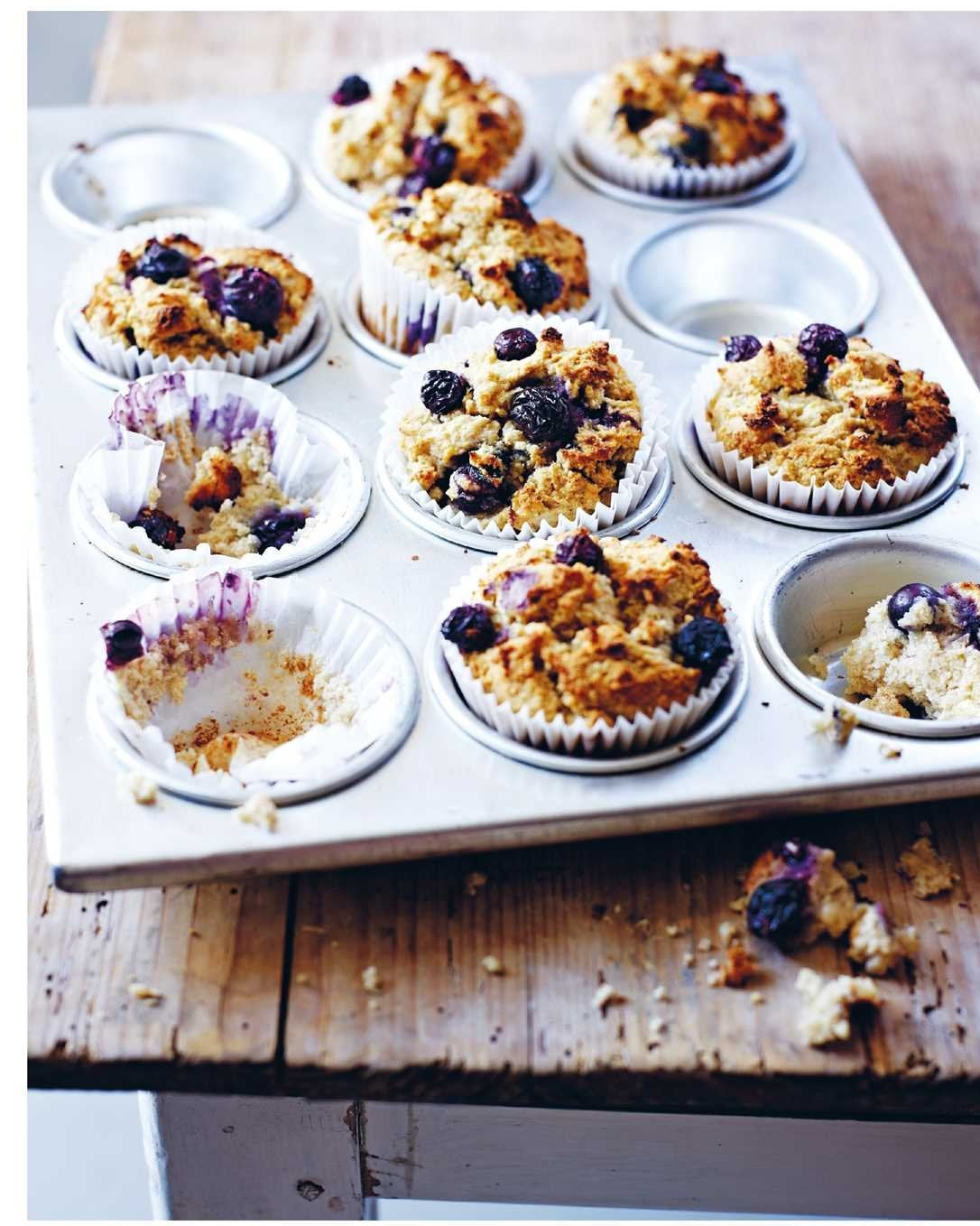
- Banana Blueberry Kefir Muffins
- Comforting Cacao Oatmeal
- Probiotic Gazpacho Soup
- Egyptian Rice and Lentil Stew
- Scandinavian Chanterelle Salad
- Spring Rolls with Fermented Onion
- Red Lentil Dosas
- Pesto Focaccia
- Coconut Kefir Smoothie
- Sweet Cinnamon & Yoghurt Scones



